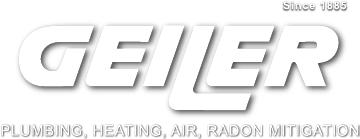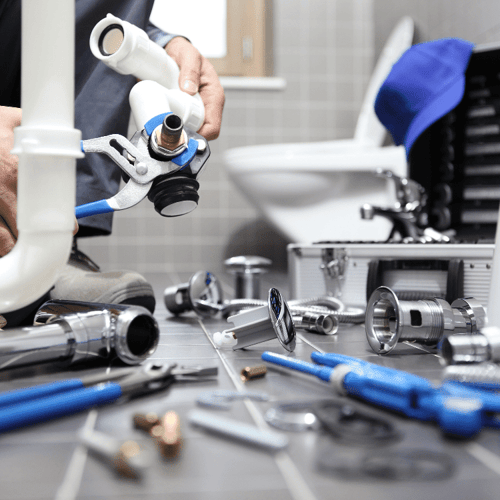Plumbing Repairs
Few things are more frustrating than leaking pipes, clogged plumbing or broken water heaters.
At Geiler, we take care of all your various plumbing and water problems so that your house continues to flow smoothly year round.
Since 1885, the Geiler Company has been serving the Greater Cincinnati, Ohio, Southeast Indiana, Northern Kentucky and surrounding areas.
Our plumbers repair and replace water heaters, toilets, faucets, disposals, sinks, clear clogged drains and repair all types of leaks and breaks.
We provide scheduled and emergency plumbing service to the Cincinnati, Northern Kentucky and Southeastern Indiana areas.
Fully Licensed Professional Plumbers
That's what we do - and we've
been doing it for over 140 years.
5 Tips for Avoiding Costly Residential Plumbing Repairs
Worried about costly plumbing repairs?
Check out these tips for residential plumbing maintenance!
Keeping your home's plumbing system in good working order can save you time, energy and money. To avoid costly repairs and inconvenient breakdowns in the future, regular maintenance is essential. Here are 7 tips for residential plumbing repairs that will help keep your system running smoothly.
1. Check for Leaks Regularly.
One of the simplest and most effective ways to avoid plumbing repairs is regularly checking for leaks. Look in all areas of your home, including pipes, toilets, showers and faucets. A leaky pipe can quickly lead to water damage, mold growth and costly repairs if it’s not addressed in a timely manner. It’s important to check for leaks on a regular basis, even if you don’t see any signs of moisture or running water. To be extra sure all potential issues are identified, hire a professional plumber who can inspect the system carefully.
2. Clean Out Drains and Gutters.
Cleaning out drains and gutters not only helps avoid costly plumbing repairs, but can also help to prevent water damage caused by clogged or backed up drains. Drains that haven’t been cleared in a while can start to smell bad and cause problems down the line, leading to blocked pipes and expensive repairs. Regularly clean out all of your home's drains and gutters a few times a year with a 50-50 vinegar and water solution. This will help loosen any built-up material and keep everything flowing smoothly.
3. Replace Old Pipes and Fixtures periodically.
Over time, pipes and fixtures can become cracked or suffer from corrosion. If you haven’t replaced your old pipes for a few years, now is the time to do it. Newer pipes are often more efficient and cost-effective in terms of energy savings. Plus, having new plumbing fixtures can help to improve the overall aesthetic of your home. Be sure to contact a reliable plumber if you're considering replacing any plumbing fixtures in your home as they can give you expert advice and guidance on the best options available.
4. Insulate Your Water Lines and Tanks.
Having insulated water lines and tanks can help to improve water efficiency in your home as more hot water is being used instead of cold. It can also help to prevent pipes from freezing during the cold winter months. Make sure to use high quality pipe insulation for best results, and contact a plumbing professional if you need help with the installation.
5. Inspect Your Sewer System and Septic Tank Annually.
Get your sewer and septic system inspected annually. This can help to identify any problems early before they become more costly repairs down the line. Ask for a video camera inspection, which can provide insight into the condition of the pipes that you wouldn’t be able to spot otherwise. Make sure to follow up on any problems that are identified during the inspection, to prevent further damage from occurring.
Here are some articles you may find helpful:


